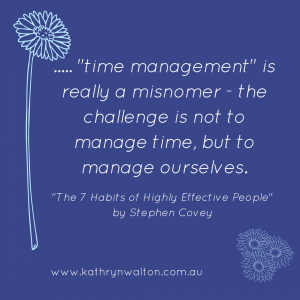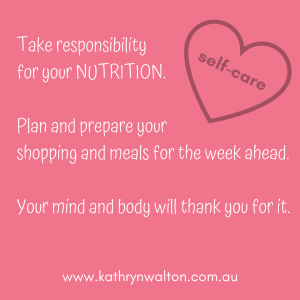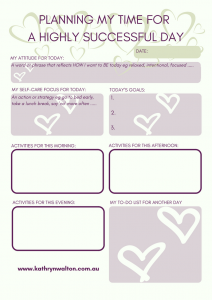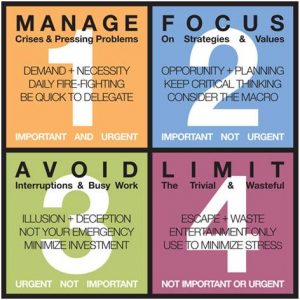In light of my self-professed need for some attention to self-care and my observations that many others around me could benefit from the same, I recently declared July 2020 to be “Self-Care Month”. This blog, in combination with the Outdoors is my Therapy podcast, my Facebook pages and my Facebook Group, have been rolling out some tools to help you create self-care opportunities in your life. As the COVID-19 restrictions eased somewhat in my region over the last month, I was also able to re-instate some bush adventure activities for the community which has been super exciting and nurturing both for myself and the participants.
Throughout July I’ve shared information with you about how you can use nature to manage stress and I’ve given you a guided mindfulness practice in Episode 14 of the podcast. I’ve also posed some questions for you to reflect on to help you identify what self-care looks like for you, what gets in the way, and which aspects of self-care you’d most like to focus your time and energy on. And now in this post we’re going to delve further into one of the most common obstacles that stops women from regular self-care routines – having enough TIME. The challenge is real – trying to do all the things in life including working, parenting, socialising, daily living tasks, responsibilities and looking after others can make it tricky to prioritise time and energy towards self.
Time Management
Here’s something I wrote a little while back in a blog about time management and I think it’s totally relevant now:
“TIME! We never seem to have enough of it, we’re always fighting it, and it’s invisible! It seems to slip through our fingers without care. It’s like an elusive double agent, tempting us with tantalising pleasures, and then it’s gone, leaving us with nothing but a pile of to-do’s and deadlines in its wake. And if we’re honest with ourselves, we’ll always find something to fill in a space that’s left when we are more efficient with our time – there’ll never be enough of it!
Time Management is a real thing!
Managing the time we have available to us is a learned skill and one that we can continually refine as our needs, activities and priorities change. There are a lot of self-help books on this topic, but honestly, who has the time to read them!”
Inner stories about self-care
When you hear or see the word ‘self-care’, what comes to your mind? What stories do you have kicking around your mind about taking time for self-care? Commonly women have told me:
- The kids have to come first
- Self-care is selfish
- I feel so guilty if I do something for myself without the rest of the family
- I don’t have time for self-care
- Self-care is a luxury, it’s not for everyday life when you have to work hard to put bread on the table
- I’m just aiming to survive – don’t give me anything more to deal with
These are all variations of saying “I don’t have enough time to do all the things. ‘Me’ and ‘self-care’ come last.”
But how would it be if you DID have enough time? What would your self-care look like then? Again, many women have told me they’d like to:
- have quiet time to themselves
- spend more time with friends laughing and relaxing
- have more holidays
- read more books
- write a book
- invest time in preparing nutritious food
- have a regular exercise routine
- go to yoga classes
- have a weekend away with their partner or friends or go to a retreat
Self-care doesn’t have to be time consuming or expensive – it all depends on how you define self-care. I wrote about What Does Self-Care Look Like? in the last blog post.
How CAN you make time for self-care?
If you’re ready to overcome the hurdle of time and get your self-care routine happening, you might find some of these ideas helpful:
1. Time is a commodity you exchange for something else
Time is a precious commodity that you exchange for something else. It’s like a business transaction between yourself and the universe. If you spend lots of money on luxury items you might not have enough left over for the basic household bills. Do you invest time into the luxury things of life – the things the wellness industry and social media would have us believe are necessary parts of self-care? Or do you invest your time firstly in the foundations of caring for your self like nutritious food, exercise and sleep?
2. You have a choice
You choose how you spend your time, in the same way that you choose how you spend your money. What choices are you making? Are you spending time inside scrolling on your phone mindlessly when you’re tired, or are you getting outside for a walk and fresh air, exercise, and getting a good sleep? Are you choosing takeaway food to have a night off cooking, or are you choosing to stock your fridge with fresh produce so that everyday you fuel your body with easy-to-prepare fresh foods?
3. Get your priorities straight
There will always be competing priorities and responsibilities in your life. Work out a system for prioritising everything, a bit like having a formula to help you decide what comes first, second and so on. A lot of us find ourselves reacting to crises or urgent problems constantly and that’s exhausting! This is when self-care often gets shoved down to the bottom of the priority list. But when you invest in self-care, you’re also investing in a strong foundation for yourself. You’ll be more productive, efficient and effective. Plan ahead and get organised. You could:
- do one big grocery shop each week instead of every day
- pre-prepare meals ahead of time so you don’t resort to convenience foods or take-away
- batch your cooking and refrigerate or freeze leftovers for another night
- install a meditation app on your phone and schedule your daily meditation into your day
- schedule your exercise and time in the outdoors
- combine time outdoors with either exercise or meditation for extra value-packed self-care
- create flexible but firm routines to ensure your self-care doesn’t get left out – don’t let your boundaries get squishy and allow other things to take priority
4. Change your mindset about time
Treat time as a precious gift that’s been given to you. Remember, time can never be refunded once it’s spent. Use it wisely.
5. What are your time vampires?
What sucks the time out of your day? Where does your time go? Are you okay about this? What can you realistically do about this? What can you change? If your life was a movie, what would your audience suggest you could do to spend your time more wisely so that your self-care doesn’t get left out, and you feel happier and more fulfilled?
6. Record your actions for a day, or longer!
Make a note in your diary or notepad of how you’re spending your day. Note down the time and what task or activity you are working on, and what time you finished. Or break your diary into 10-15 minute time blocks and record what you’re doing at every time interval. It only takes a teeny bit of time to do this, but the investment is well worthwhile! This strategy can highlight where your time goes, and keep you accountable to your goals. For example, if you want to work on a self-care goal like going for a walk or tending a vegetable garden, record the time you spend actually doing it and make a note of the benefits you experience when you make it happen.
7. Become more mindful of what you’re doing as you’re doing it
Pause at regular intervals and ask yourself “What am I doing now?” This precious moment is all you have. How are you spending your energy and time right now, in this precious moment?
8. Don’t make excuses
It’s easy to blame other people and situations for lack of time, for not being able to get outside for a walk or meditate or sit outside to watch the sunrise or sunset. Do a thorough audit and be honest with yourself. What can you take responsibility for? What changes can you make?
9. Avoid distractions
Is distraction an issue for you? Phones are known to be one of the greatest distractions to humankind because they’re so portable. We take them everywhere. Whether it’s a phone or something else consuming your time, how can you best manage your distractions so you have enough time for your priorities? Here are a few ideas to make it as easy as possible to keep your attention laser-focused and make best use of your time:
- set a timer to go off at regular intervals to remind yourself to refocus your attention, go for a walk, or simply to stop and take a few deep breaths
- switch off your wi-fi and use your phone as … well, a phone! Or mute it or switch it off when you want to focus on a task or have a break.
- turn off notifications on your phone
- close the door to your room if you want to concentrate and get a task done
put a “Do Not Disturb” sign on your office - reward yourself when you’ve completed tasks within a set time frame

You CAN make time for self-care
It’s vital that we all make self-care a priority and not use lack of time as an excuse. Basic self-care doesn’t need to take a lot of time, but if time is a real issue for you, try following the strategies we’ve discussed in this article – your mind and body will thank you for it.
Here’s a reminder!
- Time is a commodity – spend it wisely!
- YOU choose moment to moment how you spend your time
- Get your priorities sorted
- Change your mindset about time – it’s a precious gift
- Be aware of your time vampires
- Record how you spend your time
- Be mindful of how you’re spending your time
- Don’t make excuses
- Avoid distractions
I’d love to hear any other time management strategies you use to keep your self-care in action. Send me a message, and head on over to the Outdoors is my Therapy Facebook Group where we’re sharing ideas and inspiration about self-care in nature!
Listen to the audio version of “How to Make Time for Self-Care” here!
Discovering mountain biking as life’s ultimate parallel universe in her middle age,  Kathryn Walton shares information and reflections in Daisy Spoke that connect, inspire and self-empower women to make healthy choices for themselves. She integrates her love of physical exercise, family, nature, gardening and creative arts with her professional background in mental health social work to facilitate change with individuals, groups, workplaces and communities of women who are committed to living life to the full.
Kathryn Walton shares information and reflections in Daisy Spoke that connect, inspire and self-empower women to make healthy choices for themselves. She integrates her love of physical exercise, family, nature, gardening and creative arts with her professional background in mental health social work to facilitate change with individuals, groups, workplaces and communities of women who are committed to living life to the full.















 So first of all, make sure you GET THE BIG ROCKS IN YOUR LIFE FIRST. They are your priorities so take steps to make sure you allow plenty of time and energy for them. Next put in your medium-sized rocks. Your small rocks go in after that and will be able to settle into the spaces between the bigger rocks. You can be more flexible with how they fit into your life. Next comes the sand. These things will be able to flow into the spaces that you have left. If there isn’t time and energy for them right now, that doesn’t matter. When things settle, they’ll have a place in your bucket once again.
So first of all, make sure you GET THE BIG ROCKS IN YOUR LIFE FIRST. They are your priorities so take steps to make sure you allow plenty of time and energy for them. Next put in your medium-sized rocks. Your small rocks go in after that and will be able to settle into the spaces between the bigger rocks. You can be more flexible with how they fit into your life. Next comes the sand. These things will be able to flow into the spaces that you have left. If there isn’t time and energy for them right now, that doesn’t matter. When things settle, they’ll have a place in your bucket once again. 